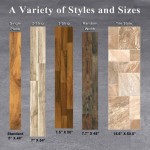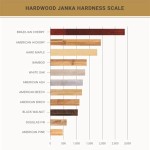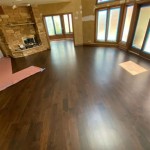Bamboo Flooring vs. Hardwood: Exploring the Pros and Cons
When it comes to flooring options, bamboo and hardwood are two popular choices that offer unique advantages and drawbacks. This article delves into the essential aspects of bamboo flooring compared to hardwood flooring, exploring their pros and cons to help you make an informed decision.
sustainability and durability
Bamboo Flooring: Bamboo, a rapidly renewable resource, is a highly sustainable flooring option. It grows quickly and can be harvested without harming the environment. Bamboo flooring exhibits exceptional durability, comparable to hardwood, due to its high density and hardness.
Hardwood Flooring: Hardwood, derived from trees, is typically harvested from slow-growing species, making it a less sustainable option. However, hardwood flooring is renowned for its unparalleled durability and lifespan, lasting decades with proper care.
Appearance and Versatility
Bamboo Flooring: Bamboo flooring boasts a unique grain pattern that enhances the natural beauty of any space. Its versatility allows for a wide range of colors and styles, including light, medium, and dark shades, to complement different décor preferences.
Hardwood Flooring: Hardwood flooring offers an unmatched warmth and character that exudes sophistication. The variety of wood species, such as oak, maple, and cherry, provides a diverse selection of grain patterns, colors, and textures to cater to various design styles.
Cost and Maintenance
Bamboo Flooring: Bamboo flooring is generally more affordable than hardwood flooring, making it a budget-friendly option. It is relatively easy to clean and maintain, requiring occasional sweeping, mopping, and occasional refinishing to restore its original luster.
Hardwood Flooring: Hardwood flooring is an investment that comes with a higher price tag. It requires regular care, including sweeping, vacuuming, and periodic refinishing, which can add to the overall cost over time.
Environmental Impact
Bamboo Flooring: Bamboo flooring has a minimal environmental impact as it is derived from a rapidly renewable resource. Its production process typically utilizes sustainable practices, contributing to the preservation of natural resources.
Hardwood Flooring: Hardwood flooring, while sourced from trees, can be harvested from sustainably managed forests to minimize its environmental impact. However, the harvesting of trees can still lead to deforestation if not managed responsibly.
Conclusion
When choosing between bamboo flooring and hardwood flooring, the best decision depends on your individual preferences, budget, and lifestyle. Bamboo flooring offers a sustainable, durable, and affordable option with a unique grain pattern. Hardwood flooring exudes timeless beauty, exceptional durability, and a wide range of species to choose from, but it comes at a higher cost and requires more maintenance. By considering the pros and cons of each type, you can make an informed choice that suits your needs and enhances the beauty and functionality of your space.

Bamboo Vs Wood Flooring A Comparison Factory Liquidators

Bamboo Versus Hardwood Flooring Kitchen Infinity

Pros And Cons Of Bamboo Flooring

Hardwood Vs Engineered Bamboo Floors Home Flooring Pros

Dark Vs Light Which Color Bamboo Flooring Is Right For You Modern

Bamboo Flooring Everything You Need To Know

Bamboo Flooring Quality How To Distinguish High Vs Low Cali
:max_bytes(150000):strip_icc()/__opt__aboutcom__coeus__resources__content_migration__treehugger__images__2018__07__IMG_3459-36f6db7d6d854ee182a346255d55e4fd.jpg?strip=all)
Pros And Cons Of 6 Diffe Kinds Wood Floors

Bamboo Flooring A Complete Guide History Pros Cons And More

Pros And Cons Of Bamboo Flooring
See Also







